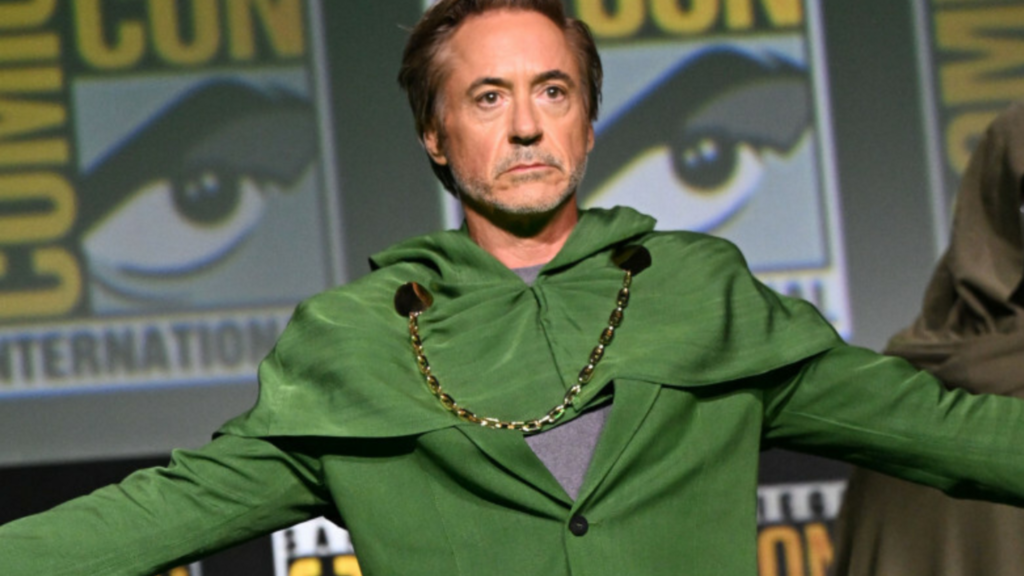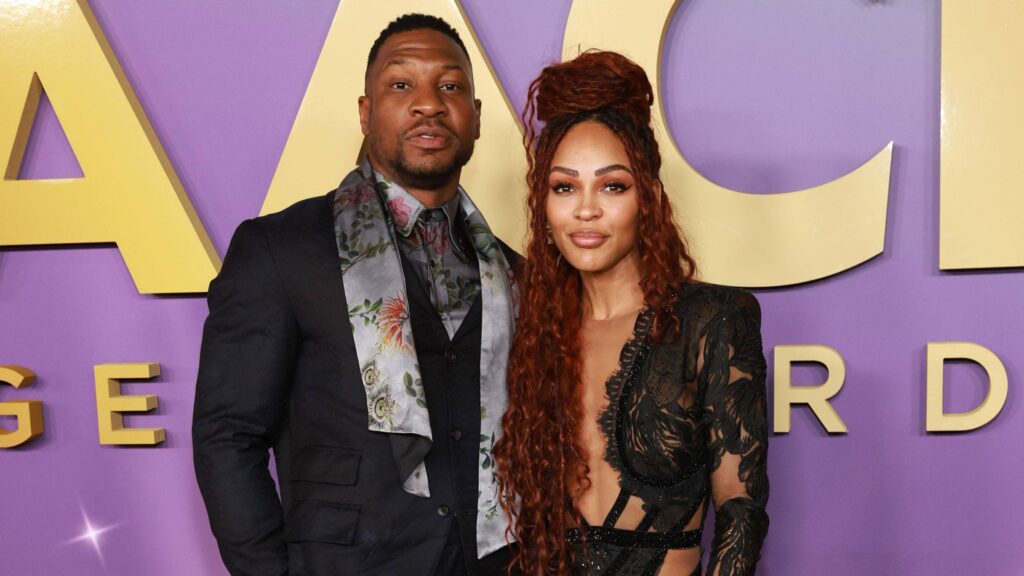In Hollywood, stories of redemption and second chances are not just plotlines—they often reflect real-life arcs of resilience, growth, and accountability. Nowhere has this been more evident than in the career of Robert Downey Jr., whose journey from legal troubles and substance abuse to becoming the face of Marvel’s billion-dollar Avengers franchise stands as a beacon of what can happen when a studio embraces talent amid adversity. The same principle should now apply to Jonathan Majors, whose recent legal troubles and the dismissal of lawsuits should prompt Disney/Marvel to rethink its stance.
Majors, a critically acclaimed actor, was in a media firestorm following his two misdemeanor convictions. In a civil lawsuit filed in New York in March, Jonathan Majors’ former partner accused him of a “pattern of pervasive domestic abuse” spanning from 2021 to 2023. However, in court documents filed, attorneys for both parties agreed to dismiss the claims against Majors with prejudice, ensuring that these allegations cannot be refiled
In light of this, Marvel should take a moment to reflect on its precedent. If Robert Downey Jr., with a well-documented history of criminal offenses and substance abuse, was allowed to become one of the most beloved Marvel star in the world, why shouldn’t Majors be offered the same chance?
A Tale of Two Actors
Robert Downey Jr.’s troubled past is no secret. In the late 1990s and early 2000s, his career was nearly derailed by arrests for drug possession and time spent in rehab. His struggles were public and prolonged, yet Hollywood—and Marvel specifically—saw his potential. By casting him as Tony Stark in Iron Man, Marvel revived Downey’s career and set the foundation for history’s most successful film franchise. The decision was risky, but it paid off financially and culturally.
Now, Marvel is reportedly bringing Downey back as a new character, Doctor Doom, embracing his talents again despite his well-documented past. Yet, Jonathan Majors, who was only found guilty of two minor charges and had to do counseling, finds himself ignored and sidelined in a situation where many feel he caught a raw deal. The charges shouldn’t have even been brought against him. This stark inconsistency raises questions about fairness and who is afforded grace in Hollywood.

Robert Downey Jr. to Earn $100 Million for Playing Dr. Doom: Report – IMD
Jonathan Majors, by contrast, has not demonstrated a pattern of behavior akin to Downey’s public struggles but for this one incident. He has been a rising star and is celebrated for his performances in projects like Lovecraft Country, Creed III, and Ant-Man and the Wasp: Quantumania. Unlike Downey, who had to rebuild after confirmed misconduct, Majors is still navigating a complex situation where one mistake should not erase a lifetime of trying to be the best he can be as an actor.
A Call for Compassion and Consistency
Disney/Marvel’s swift distancing from Majors raises questions about fairness and consistency. The studio has previously demonstrated patience and understanding for other actors embroiled in controversy. Why, then, should Majors be treated differently? In an era when public figures are often tried in the court of public opinion, studios like Marvel have the power to set an example by upholding.
Furthermore, Majors attended counseling after the court case and got engaged to Megan Good—Disney/Marvel not severing ties so quickly—which would align with modern values of accountability and growth. This approach doesn’t absolve or ignore potential wrongdoing but instead creates a path forward, showing that Marvel believes in redemption and responsibility, not just punishment.
The contrasting treatment of James Gunn and Jonathan Majors by Disney/Marvel raises uncomfortable questions about equity and forgiveness in Hollywood. Gunn was fired in 2018 after offensive tweets resurfaced. Yet, his public apology and industry support led to his reinstatement less than a year later, allowing him to continue directing Guardians of the Galaxy Vol. 3. Now Gunn has become the head of DC Studios. This disparity suggests that forgiveness and second chances may be extended more readily to white men in the industry. In contrast, Black men face harsher consequences. It’s a glaring inconsistency, calling for deeper reflection on how Hollywood applies its values of redemption and fairness.
Jonathan Majors’ contract with Marvel Studios reportedly included a unique clause designating him as the exclusive actor to portray Kang the Conqueror and all its variants, making him central to the Marvel Cinematic Universe’s future for at least the next 10 years. However, following his recent conviction, Marvel and Disney swiftly distanced themselves, sidelining Majors despite his lack of prior misconduct.
At the same time, Ant-Man and the Wasp: Quantumania underperformed at the box office, grossing $476.1 million worldwide against a $388.4 million production budget—well below the $600 million break-even point. Critics blamed weak storytelling, excessive CGI, and a lukewarm reception of how Kang was written, not Majors’ portrayal of Kang. The film’s poor performance also appeared to impact Disney’s stock price, which dropped from $105.22 on February 17, 2023 (the film’s release date), to $100.35 by February 24—a 4.6% decline within a week.
Marvel’s subsequent pivot, rebranding Avengers: The Kang Dynasty to Avengers: Doomsday and bringing back Robert Downey Jr. as Doctor Doom, suggests the studio used both the film’s disappointing results and Majors’ legal troubles as an opportunity to reset its narrative direction. This abrupt shift raises questions about whether the decision was driven by Majors’ situation or the studio’s desire for a convenient way to move on, further underscoring inconsistencies in how Marvel treats its stars.

Redemption Is Profitable—and Right
From a business perspective, bringing Majors back isn’t just ethical; it’s also smart. Majors’ portrayal of Kang the Conqueror, and his variant He Who Remains, and Vitor Timely in the Marvel Cinematic Universe (MCU) has already drawn widespread acclaim. Replacing him would risk alienating fans, disrupting continuity, and undermining the MCU’s carefully constructed narrative. Moreover, audiences love a comeback story. Just as Downey’s personal growth became part of his public appeal, Majors’ resilience and accountability could further endear him to fans.
Disney/Marvel can demonstrate its belief in fairness and the power of second chances by reinstating Jonathan Majors. If they could take a chance on Robert Downey Jr.—a decision that changed Hollywood forever—they can certainly extend that same grace to Majors. Doing so would honor Marvel’s redemption legacy and reinforce that growth and accountability should be celebrated, not shunned. Is it time for Marvel to practice the heroism it often portrays on screen?










